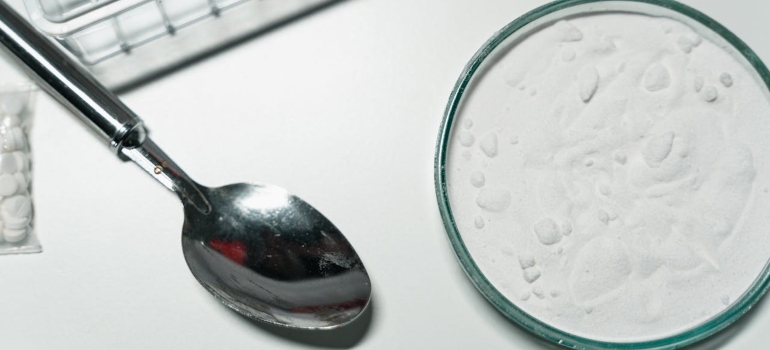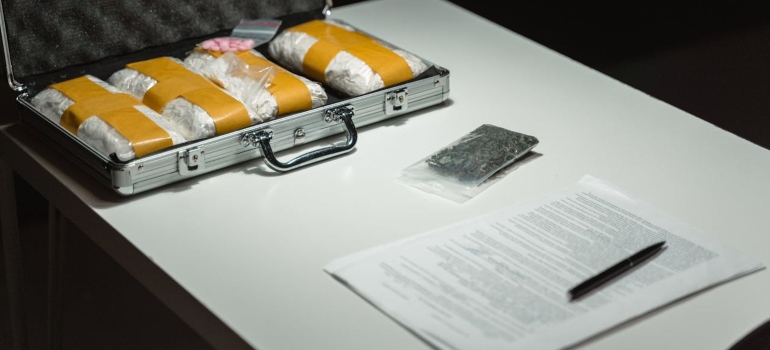Phencyclidine, commonly known as PCP, is one of the most dangerous hallucinogenic drugs. Despite its risks, some people still use it for its powerful mind-altering effects. Understanding the effects of PCP is important for individuals, families, and communities to address the dangers it poses. This drug’s unpredictability not only endangers the user but also puts others at risk due to erratic and aggressive behavior. If you or someone you know struggles with PCP addiction, seeking professional help at addiction treatment centers in West Virginia can make a life-saving difference.
What Are the Effects of PCP: Understanding PCP
PCP was initially developed as an anesthetic but was discontinued due to severe side effects. Today, it’s known for its mind-altering and addictive qualities. It is available in various forms, such as powder, liquid, or tablets, and can be ingested, snorted, or smoked. Users take it to experience euphoria and hallucinations, but the effects are unpredictable and often dangerous.

The unpredictability of PCP’s effects stems from its unique way of interacting with the brain’s chemical receptors. Even a small amount can lead to a range of symptoms, from mild euphoria to extreme aggression. Because of this, the drug has earned a reputation for its ability to cause erratic and harmful behavior, both for the user and those around them.
Short-Term Effects of PCP
The short-term effects of PCP vary widely depending on the dose and individual response. Some common effects include:
- Intense euphoria and hallucinations.
- A sense of detachment or dissociation from reality.
- Aggression and unpredictable behavior.
- Poor judgment and risky actions.
These effects often lead to:
- Self-harm or violent actions.
- Accidental injuries due to impaired coordination.
- Dangerous interactions with others caused by increased aggression.
Short term effects of PCP may seem appealing to some, such as the feeling of euphoria, but these fleeting sensations are often outweighed by the drug’s harmful consequences. Impaired judgment and dissociation from reality significantly increase the risk of accidents, violence, or even life-threatening situations.
Long-Term Effects of PCP
Long-term use of PCP has severe consequences, including:
- Persistent memory loss.
- Speech difficulties, such as slurred or slowed speech.
- Chronic mood disorders, including anxiety and depression.
Over time, heavy PCP use can cause neurological and psychological damage. The brain’s ability to process information and regulate emotions becomes impaired, leaving individuals struggling to function in daily life. Long term effects of PCP can also include social consequences, such as damaged relationships, loss of employment, and isolation, further compounding the user’s challenges.

Even when someone stops using PCP, the lingering effects may persist for weeks or months, requiring extensive medical and psychological intervention. Early recognition and treatment of these symptoms are necessary to prevent permanent damage.
Mental Health Risks and PCP Psychosis
One of the most alarming effects of PCP is its impact on mental health. The drug’s ability to disrupt brain chemistry often leads to psychosis, a severe condition where individuals lose touch with reality. PCP-induced psychosis is dangerous not only for the user but also for those around them, as it can result in unpredictable and aggressive behavior. Prolonged use increases the likelihood of persistent mental health issues, making early intervention crucial.
How Long Does PCP-Induced Psychosis Last?
PCP-induced psychosis can last anywhere from a few hours to several days. The duration depends on factors such as dosage, frequency of use, and the individual’s mental health history. Symptoms of psychosis often include:
- Paranoia and extreme suspicion.
- Delusions or false beliefs.
- Severe agitation and emotional instability.
For occasional users, these symptoms may fade as the drug leaves their system. However, long-term or heavy users may experience psychosis that persists even after they stop using the drug. In extreme cases, the damage to the brain can result in chronic mental health disorders that require extensive treatment. This makes it important for those experiencing symptoms to seek medical help immediately.
Does PCP Increase Dopamine?
Yes, PCP increases dopamine levels in the brain, but not in a healthy or sustainable way. By disrupting the brain’s normal chemical processes, the drug triggers:
- Intense mood swings, including severe aggression or depression.
- An increased risk of dependency and addiction.
- A reduced ability to feel satisfaction from natural rewards.

These effects create a dangerous cycle. The initial dopamine surge can feel euphoric, but over time, the brain’s natural dopamine production diminishes, leading to withdrawal symptoms and cravings. This chemical disruption highlights the challenges of overcoming PCP addiction without professional help. Treatments like cognitive behavioral therapy for substance use disorders are often necessary to address these underlying issues and support long-term recovery.
The Dangers and Complications of PCP Use
PCP poses significant risks to users, both in the short and long term. Its unpredictable effects and high potential for addiction make it one of the most dangerous drugs. In addition to the immediate physical and psychological harm, prolonged use can lead to severe complications that impact nearly every aspect of a person’s life. Understanding these dangers is essential for recognizing when intervention is necessary and taking steps toward recovery.
What Are the Complications of PCP?
PCP use can result in several severe complications, including:
- Aggressive behavior: Users often become violent or erratic, which puts themselves and others in danger.
- Respiratory distress: High doses can cause breathing difficulties, potentially leading to suffocation or brain damage.
- Seizures: The drug’s effect on the brain can trigger seizures that may have long-lasting neurological consequences.
- Overdose: PCP overdose can lead to coma, organ failure, or death, especially when combined with other substances.
In addition to physical complications, chronic users often experience irreversible damage to the brain. This damage can manifest as long-term mental health disorders, memory loss, and a diminished ability to function in everyday life. The side effects of PCP are not limited to the individual users’ relationships, careers, and family dynamics often suffer as well.
Recognizing When to Seek Help
Recognizing the signs of PCP addiction is the first step toward getting help. Some of the most common signs include:
- Persistent cravings and frequent use despite harmful consequences.
- Withdrawal from loved ones and abandonment of responsibilities.
- Erratic behavior, mood swings, and episodes of psychosis.

Individuals addicted to PCP often struggle to recognize the severity of their situation. Loved ones may need to step in and encourage professional help. It’s important to act quickly, as continued use increases the risk of permanent damage or fatal complications.
Seeking treatment at a rehab center, such as Rehab Center Huntington WV, provides individuals with access to life-saving interventions. Programs often include medical detox to safely manage withdrawal symptoms and therapy options to address the underlying causes of addiction. By recognizing the dangers and complications of PCP use, individuals and families can take proactive steps to prevent further harm and begin the journey toward recovery.
The Social and Economic Impact of PCP Addiction
PCP addiction doesn’t just harm the individual; it also affects families, communities, and society as a whole. Its effects can be seen in strained relationships, financial instability, and increased burdens on healthcare and criminal justice systems. Understanding the broader consequences of PCP addiction highlights the urgency of addressing this issue through comprehensive recovery programs.
Effects on Relationships and Family Dynamics
Addiction often leads to emotional and physical distance in relationships. PCP users may isolate themselves, abandon responsibilities, or display erratic behavior, leaving loved ones feeling helpless and hurt. Family members often bear the weight of:
- Financial strain caused by money spent on drugs or missed work.
- Emotional distress from witnessing a loved one’s decline.
- Conflicts and mistrust due to unpredictable or aggressive behavior.
Children in households affected by addiction may also experience neglect or trauma, leading to long-term emotional challenges. Families dealing with these effects often need professional support to rebuild trust and foster understanding. Family counseling offered through addiction treatment programs, like those in West Virginia, can help restore healthy dynamics. Additionally, group therapy for addiction provides families a space to share experiences and learn from others navigating similar struggles.
Economic Consequences of PCP Addiction
The financial toll of PCP addiction extends beyond the user. Communities face increased costs from:
- Healthcare Expenses: Treating injuries, overdoses, and related conditions, such as those addressed in medical detox programs like benzo detox for example.
- Loss of Productivity: Addiction often leads to unemployment or decreased work performance, affecting local economies.
- Legal and Criminal Justice Costs: PCP-related crimes or accidents strain law enforcement and the court system.

The loss of economic stability also impacts families directly. Many individuals struggling with addiction fall into financial hardship, leading to evictions, job loss, or increased reliance on public assistance. Programs like cocaine addiction rehab not only address substance use but also provide vocational training and financial education, helping individuals regain stability and contribute positively to society.
According to the National Survey on Drug Use and Health, approximately 6.1 million individuals in the United States aged 12 and older have reported using PCP at least once in their lifetime. By recognizing these widespread impacts, communities and families can advocate for greater access to resources, such as addiction treatment centers, to combat the effects of PCP. Recovery is not just about the individual—it’s about healing the social and economic structures that addiction disrupts.
Treatment Options for PCP Addiction
Overcoming PCP addiction is challenging but achievable with the right support. The drug’s powerful effects on the brain and body require comprehensive care to ensure a successful recovery. For example, long term drug rehab WV provides evidence-based solutions to help individuals break free from PCP dependency and regain control of their lives. These programs address both the physical and psychological aspects of addiction, offering a pathway to lasting recovery.
Addiction Treatment Centers in West Virginia
Treatment for PCP addiction often begins with detoxification, as the drug’s withdrawal symptoms can be severe and even dangerous. Supervised detox ensures the process is managed safely, with medical professionals available to monitor the individual’s progress. Following detox, individuals can benefit from therapies such as:
- Cognitive Behavioral Therapy: This method helps individuals identify and change negative thought patterns that contribute to addiction.
- Group Therapy for Addiction: Participating in support groups allows individuals to share experiences and build a network of encouragement.
- Dialectical Behavior Therapy: This therapy focuses on teaching skills for emotional regulation and coping with stress.
Rehabilitation programs also provide education on the long-term effects of PCP, helping individuals understand the importance of maintaining sobriety. In facilities like Rehab Center Huntington WV, personalized treatment plans are developed to address the unique needs of each patient, ensuring the best chance of recovery.

Steps to Recovery and Healing
Recovery from PCP addiction is a multi-step process that requires dedication and support. The key steps include:
- Personalized Treatment Plans: Each individual’s experience with PCP is different, so treatment plans are tailored to their specific needs and circumstances.
- Therapeutic Approaches: Strategies such as dialectical behavior therapy for addiction and cognitive behavioral therapy address the mental health challenges associated with PCP use.
- Relapse Prevention: Programs focus on managing triggers, building healthy habits, and coping with setbacks in recovery as well.
Recovery also involves rebuilding relationships and restoring stability to daily life. Many programs offer family counseling and other resources to help loved ones understand and support the recovery process.
Overcoming the Effects of PCP: A Path to Healing
The effects of PCP can devastate individuals, families, and communities. This dangerous drug causes short- and long-term harm, including severe mental health issues, physical complications and other health consequences. Recovery is challenging, but with the right support, it is possible to overcome addiction and lead a healthier, more fulfilling life. Taking the first step by reaching out to Harmony Ridge Recovery Center WV can provide hope and healing. The sooner professional help is sought, the better the chances of reversing the damage caused by PCP and building a brighter future.
Reference:
https://drugabuse.com/drugs/hallucinogens/pcp/history-statistics/



